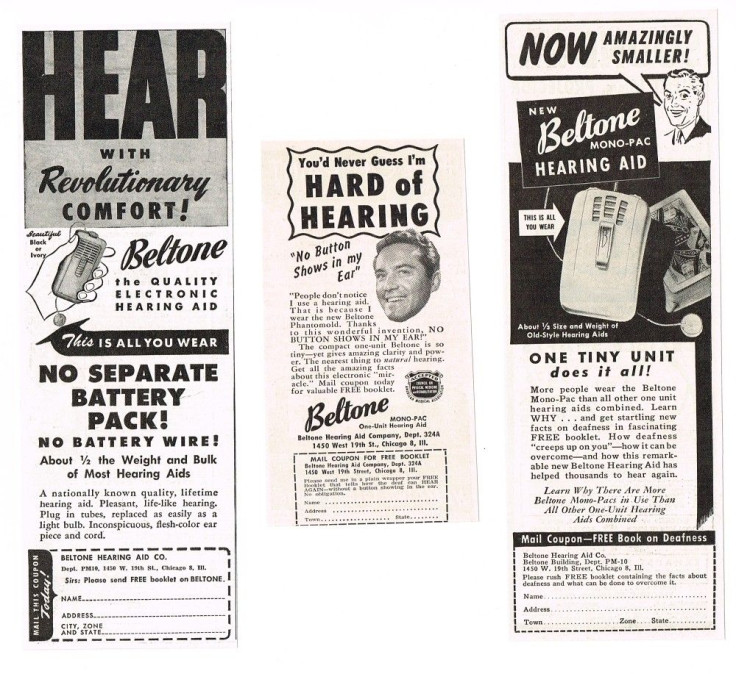Haven't Heard When OTC Hearing Aids Arrive? No One Else Has, Either

You call your favorite uncle to wish him a happy birthday and he says, “What? Speak up!” You say it again, louder, and he says, “Who is this?” You spend the remainder of your call shouting, trying to make yourself understood, and wondering why he doesn’t get a hearing aid. If he’s like many Americans, the reason is simple: cost.
Hearing aids are prohibitively expensive for many people, especially those on fixed incomes. Customers pay an average of $2372 for a single hearing aid that is expected to last for about three years. Medicare does not cover any of the cost and neither do most private insurers.
That’s why Senators Elizabeth Warren, Chuck Grassley, Maggie Hassan, and Johnny Isakson introduced the Over-the-Counter Hearing Aid Act , which was signed into law in 2017 in a rare show of bipartisanship. It meant that the FDA would work toward regulating and approving over-the-counter hearing aids for the first time. Similar to reading glasses, these hearing aids could be sold at drugstores and grocery stores at much lower prices than you’d get when ordering through an audiologist.
Delayed Ruling
The FDA was required to release their proposed regulations by August 18, 2020, but didn’t, reportedly citing changing priorities during the pandemic.
That’s not acceptable to the senators who proposed this. In their November 13, 2020 letter to FDA commissioner Stephen M. Hahn, MD, Senators Warren and Grassley write, “The impact of the novel coronavirus on the agency’s priorities and workload cannot be overstated, and we appreciate the FDA’s continued efforts to respond to this global crisis that has profoundly affected so many Americans. However, despite the pandemic, hearing loss continues to be a problem for millions of Americans, and we believe that the FDA must also make issuing the OTC hearing aid regulations a priority, consistent with the law. We respectfully request that the agency release the proposed rule without delay.”
The Scope of the Problem
When you cannot communicate well with others, you’re more prone to feelings of isolation and depression. Both are already major issues for senior citizens. Hearing loss interferes with quality of life, and it affects 1 in 3 people over the age of 65 and 2 out of 3 people over the age of 75.
Yet only 14 percent of those with hearing loss use hearing aids.
Changing Tech
Hearing aids have made major advances in recent years; Whisper uses artificial intelligence to adjust to different noise settings, for instance, and modern hearing aids are now smaller and less noticeable than their older, feedback-buzzing counterparts. Many now use wireless technology to connect directly to phones, televisions, and other devices so that audio signals go directly to the hearing aid. Newer hearing aids also often include rechargeable batteries rather than relying on disposable ones.
As for those devices online ...
There are already devices marketed as OTC “hearing aids,” but any that do call themselves that are running afoul of the law. Those devices are not currently regulated and are meant to be called “personal sound amplification products” (PSAPs). PSAPs are intended for those without hearing loss who just want to occasionally turn up the volume, such as listening to the television without turning up the speakers and annoying those around them. The FDA says those with hearing loss should always consult a professional.
But is There a Catch to OTC Devices?
Audiologist Rachel Raphael, MA, CCC-A, tells Medical Daily that there’s a mix of good and bad here. “Yes, they will be way less expensive and get amplification into more people’s ears, but they will not be perfect, or come with the fitting, adjusting, counseling, and TLC that we audiologists provide. Our prices are high because we charge a ‘bundled’ price (top and latest hearing aid technology hardware bundled with fitting, adjusting, repairing, replacing when lost, trouble-shooting, cleaning, and supplying spare parts like domes, batteries, filters, etc. over the life of the hearing aid).”
She says that some dispensers are rethinking their pricing strategies and “unbundling” the price of hearing aids from the service package and office visits to compete with the lower prices OTC will be able to provide.
The Take Home
“Ultimately, the OTC aids will be beneficial for some people, but not for the more complex fitting cases, and not for severe/profound hearing losses, and unusually shaped ear canals-- for which custom hearing aids will serve better,” Raphael says.
Despite the delay, expect to see OTC hearing aids in stores in 2021.
Jenna Glatzer is the author or ghostwriter of more than 30 books, including Celine Dion’s authorized biography.
Published by Medicaldaily.com



























